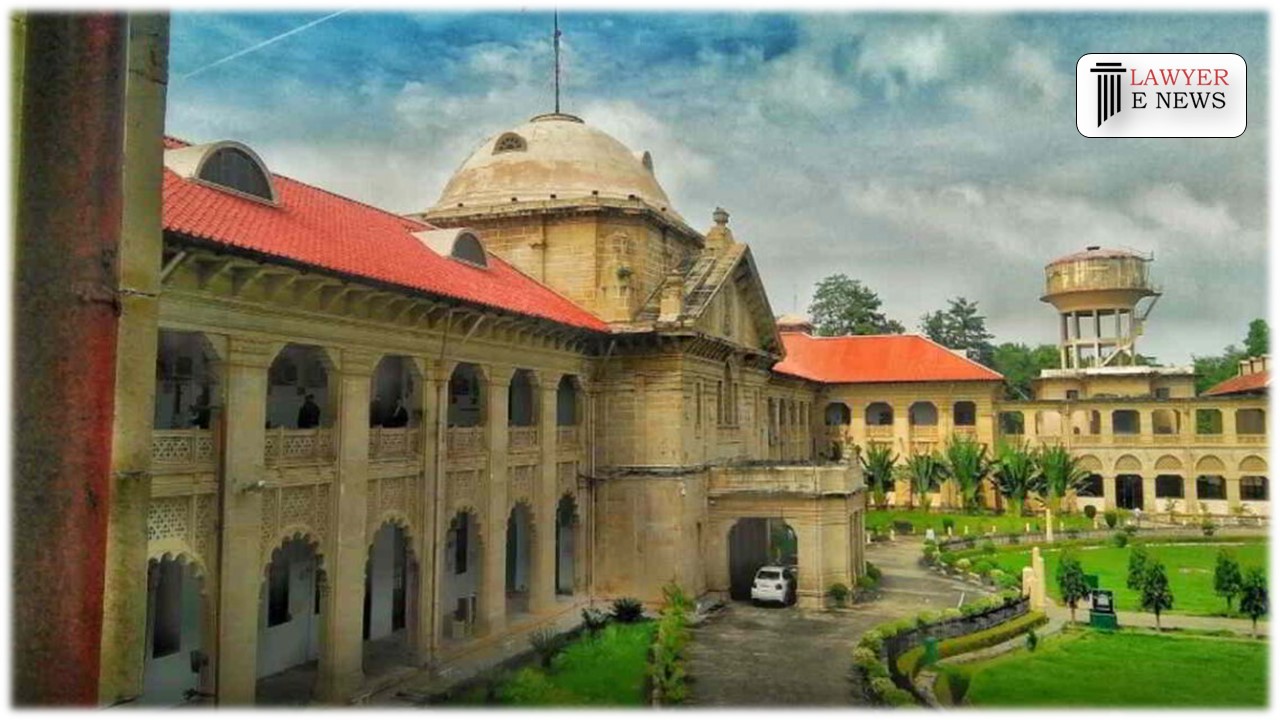-
by Admin
15 February 2026 5:35 AM



In a significant ruling, the Allahabad High Court has overturned the convictions of several individuals in a high-profile 1989 murder case from Uttar Pradesh, citing unreliable eyewitness testimony and substantial gaps in forensic evidence. The bench, comprising Justices Arvind Singh Sangwan and Ram Manohar Narayan Mishra, highlighted that the prosecution's case was fundamentally flawed due to inconsistencies and lack of corroboration.
Background: The case centers on the murder of Devendra Prakash Gaur, an Inspector in the Uttar Pradesh Police, on October 9, 1989. According to the prosecution, Gaur was traveling with his brother (PW-1), father, and Mahendra Kumar Kaushik when their car was ambushed by the accused, resulting in Gaur's death. The trial court had convicted the appellants under various sections of the Indian Penal Code, including murder (302/149 IPC), rioting (147, 148 IPC), and robbery (392 IPC). However, the High Court's review raised serious concerns about the reliability of the evidence presented.
Eyewitness Reliability: The court critically examined the testimony of the sole eyewitness, PW-1, who was also the brother of the deceased. "The testimony of PW-1, who had changed his account multiple times, lacks credibility. The witness initially implicated one Mahendra Kumar Kaushik as a key conspirator only to later retract and accuse others," the bench observed. The court noted that the trial court had acquitted Mahendra Kumar Kaushik due to these inconsistencies, but had failed to apply the same scrutiny to the other accused.
Forensic Evidence: The High Court emphasized the prosecution's failure to present compelling forensic evidence. "The absence of ballistic reports, the destruction of critical case property, and the lack of forensic corroboration severely weaken the prosecution's narrative," the judgment stated. The court underscored that crucial items such as the alleged murder weapon and the car used in the crime were not properly examined or presented in court.
Legal Reasoning: Delving into the principles of evaluating evidence, the court reiterated the necessity of credible and corroborative evidence in criminal convictions. "A conviction cannot rest solely on the testimony of a witness whose credibility is in serious doubt, especially when the supporting forensic evidence is either non-existent or inconclusive," the judgment read. The court also noted that the prosecution failed to establish a clear motive, which is often a crucial component in criminal cases.
Justice Arvind Singh Sangwan remarked, "The presence of inconsistencies in the eyewitness's testimony and the lack of supporting forensic evidence create a significant doubt about the prosecution's case, which must benefit the accused."
Conclusion: The Allahabad High Court's decision to acquit the accused underscores the judiciary's commitment to ensuring convictions are based on reliable and corroborative evidence. This landmark ruling not only highlights the importance of witness credibility and forensic evidence but also sets a precedent for future cases, reinforcing the need for thorough and unbiased investigations.
Date of Decision: 30th May 2024
Chandrapal and Others vs. State of U.P.
